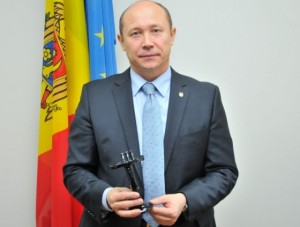Moldova steps up search for missing millions from banks
 Moldova is stepping up efforts to try to track down missing millions from its banking system and recover the lost money from bank accounts abroad where possible, its new prime minister Valeriu Strelet said.
Moldova is stepping up efforts to try to track down missing millions from its banking system and recover the lost money from bank accounts abroad where possible, its new prime minister Valeriu Strelet said.
The small ex-Soviet country, between Ukraine and Romania, has been in turmoil since it emerged that $1 billion – roughly the equivalent of an eighth of gross domestic product – had disappeared from three banks, driving them into administration.
The financial crisis and ensuing political instability, which indirectly brought about the downfall of former prime minister Chiril Gaburici in June, has delayed the start of a new International Monetary Fund program as well as budgetary support from key partners, including the European Union and the World Bank.
It has also cast a deep shadow over the leadership of pro-EU political forces that have governed the country of 3.5 million since 2009.
Though the country has signed political and free trade agreements with the EU to move it toward joining mainstream Europe, the banking scandal shows Moldova remains mired in corruption and economic mismanagement.
Speaking in an interview with Reuters, Strelet said a tender would go out on Monday (Aug 10) for the selection of foreign investigative bodies that would have the twin task of tracing the missing cash abroad and then recovering it from foreign bank accounts.
“The first part will be an investigation to find out where the assets and monies are and who are the people who instigated this range of actions and who are the beneficiaries,” he said.
“The second stage of recuperation will be based on the ‘success fee’ principle. They will receive their remuneration only on the basis of succeeding (in recovering the money).
“The money cannot disappear without a trace. But though it could be found, in some cases it may be difficult by legal action to recover it. We are counting on the cooperation of governments where these accounts are found, but I know it will be quite a long process and not an easy one,” he said.
He estimated the missing money being held outside the country amounted at around $700-800 million.
Mending fences with the IMF, which had for some time been warning the Moldovan authorities about the state of the banking sector, will be one of Strelet’s main tasks.
The three insolvent banks, which included the Banca de Economii that is one of the main issuers of pensions and social payments in Moldova, will be liquidated, he said, in line with recommendations of the World Bank and others.
An IMF mission was now expected to visit from September 21 to look at prospects for a new support program, he said.
According to a report drawn up by the consultancy Kroll, which was leaked by a Moldovan parliamentarian, the swindle was carried out over months by a network of fraudulent loans and transfers.
This took the money out of the country via a network of Russian entities and U.K.-based ‘shell’ companies and channeled it into Latvian banks.
The report pointed the finger at Ilan Shor, a billionaire businessman who owns a chain of duty-free shops and other outlets at Chisinau’s main international airport, as one of the main beneficiaries.
Shor, whose movements are under court supervision, has denied involvement and says he has cooperated with investigators over finding out who was behind the theft. He could not be reached for comment on Friday.
Gaburici resigned as prime minister in June after the validity of his high school diplomas was questioned, an issue which emerged publicly only after he accused highly-placed officials of moving slowly to investigate the banking swindle.
Reuters August 7, 2015
